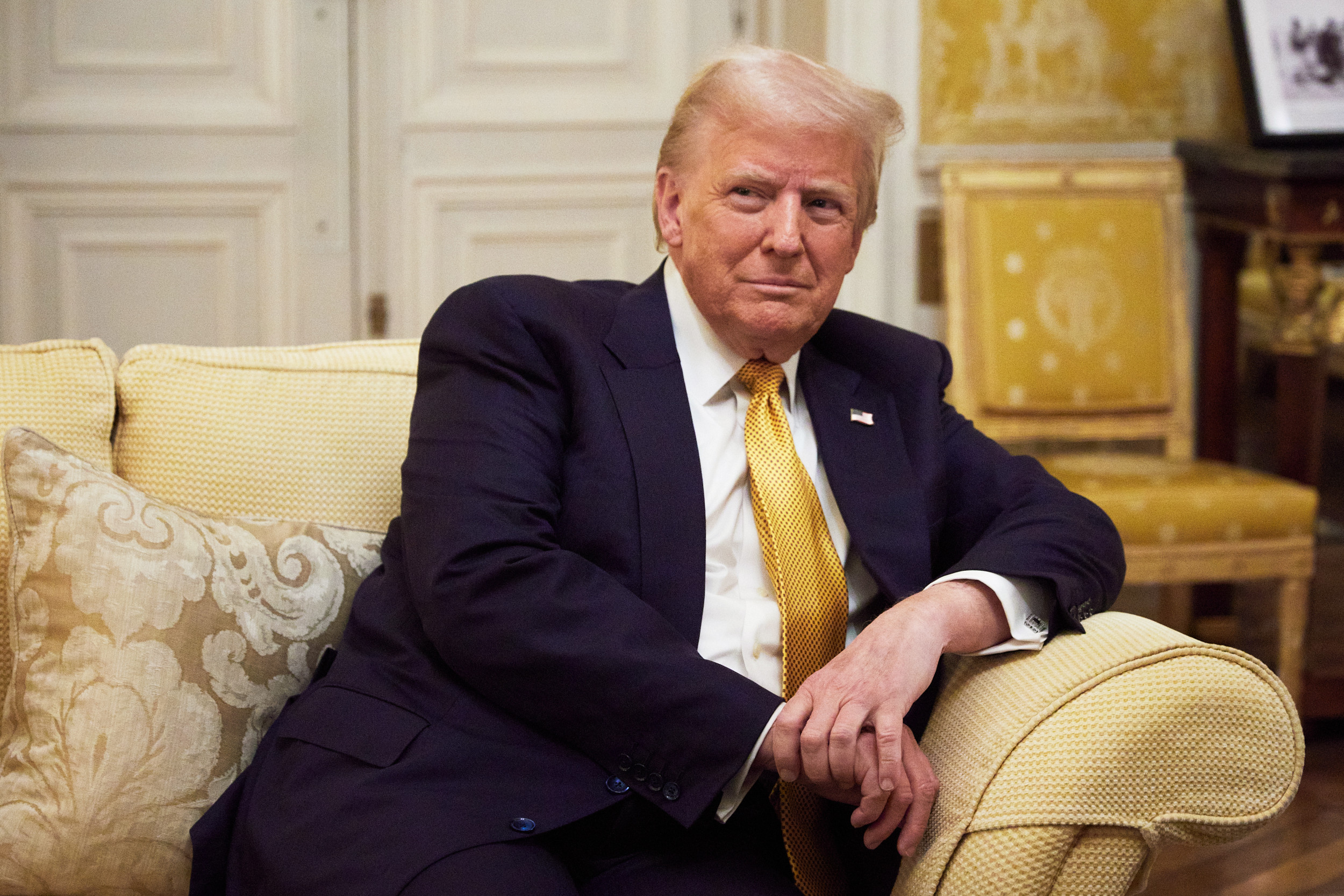
Trump-Era DOJ Bypassed Data Seizures Rules, Watchdog Says
Posted on 12/10/2024

A new Department of Justice watchdog report has revealed that federal prosecutors under the first Trump administration bypassed key internal guidelines when seizing phone records of journalists and congressional staff as part of media leak investigations.
The report by the DOJ's inspector general, Michael Horowitz, released Tuesday, highlights sweeping data seizures targeting two Democratic lawmakers, Representatives Adam Schiff and Eric Swalwell, and 43 congressional staffers.
Among the individuals whose records were obtained was Kash Patel, then a House Intelligence Committee staffer and now President-elect Donald Trump's pick for FBI director.
Patel has spoken of his desire to "come after" members of the media and his belief that the federal government should be rid of "conspirators" against Trump.
Findings Highlight Risks to Press Freedom
Prosecutors collected phone records and text message logs from service providers, including Apple, in 2017 and 2018, using subpoenas and legal maneuvers that prevented companies from notifying affected individuals.
The watchdog's report revealed that former Attorney General William Barr authorized subpoenas targeting reporters at major outlets like CNN, The New York Times, and The Washington Post but failed to convene the mandatory internal News Media Review Committee—a requirement for such actions.
The committee is meant to ensure that officials from several departments can weigh in on decision-making at this level.
The watchdog noted that while career prosecutors acted without evidence of retaliatory motives, the wide-reaching nature of these investigations created the appearance of executive interference in legislative oversight.
DOJ Policy Reforms Still Face Challenges
The revelation also comes amid debates over how the second Trump administration might treat the press over the next four years.
In 2021, Attorney General Merrick Garland implemented new policies prohibiting prosecutors from secretly seizing reporters' records, except under extraordinary circumstances.
Garland's reforms followed public outrage over the disclosure of surveillance on reporters during the Trump administration. They aim to safeguard press freedom while balancing national security needs.
Democrats warn that the incoming Trump administration could roll back these protections.
Patel has expressed strong opinions about the press, stating in a 2023 interview with Steve Bannon that he intends to target journalists who "lied about American citizens" and supported narratives he deemed false.
PRESS Act Proposal
The report sheds light on longstanding challenges faced by both Democratic and Republican administrations in balancing press freedom with national security.
During Barack Obama's presidency, Attorney General Eric Holder revised guidelines for leak investigations after similar controversies over reporter surveillance.
Advocates for press freedom, including lawmakers and journalists, continue to push for stronger protections. Proposed legislation such as the Protect Reporters from Exploitative State Spying (PRESS) Act seeks to codify limits on government surveillance of journalists.
However, these efforts face opposition from Trump-aligned groups, who will likely recommend rescinding Garland's reforms.
This article includes reporting by the Associated Press.
The report by the DOJ's inspector general, Michael Horowitz, released Tuesday, highlights sweeping data seizures targeting two Democratic lawmakers, Representatives Adam Schiff and Eric Swalwell, and 43 congressional staffers.
Among the individuals whose records were obtained was Kash Patel, then a House Intelligence Committee staffer and now President-elect Donald Trump's pick for FBI director.
Patel has spoken of his desire to "come after" members of the media and his belief that the federal government should be rid of "conspirators" against Trump.
Findings Highlight Risks to Press Freedom
Prosecutors collected phone records and text message logs from service providers, including Apple, in 2017 and 2018, using subpoenas and legal maneuvers that prevented companies from notifying affected individuals.
The watchdog's report revealed that former Attorney General William Barr authorized subpoenas targeting reporters at major outlets like CNN, The New York Times, and The Washington Post but failed to convene the mandatory internal News Media Review Committee—a requirement for such actions.
The committee is meant to ensure that officials from several departments can weigh in on decision-making at this level.
The watchdog noted that while career prosecutors acted without evidence of retaliatory motives, the wide-reaching nature of these investigations created the appearance of executive interference in legislative oversight.
DOJ Policy Reforms Still Face Challenges
The revelation also comes amid debates over how the second Trump administration might treat the press over the next four years.
In 2021, Attorney General Merrick Garland implemented new policies prohibiting prosecutors from secretly seizing reporters' records, except under extraordinary circumstances.
Garland's reforms followed public outrage over the disclosure of surveillance on reporters during the Trump administration. They aim to safeguard press freedom while balancing national security needs.
Democrats warn that the incoming Trump administration could roll back these protections.
Patel has expressed strong opinions about the press, stating in a 2023 interview with Steve Bannon that he intends to target journalists who "lied about American citizens" and supported narratives he deemed false.
PRESS Act Proposal
The report sheds light on longstanding challenges faced by both Democratic and Republican administrations in balancing press freedom with national security.
During Barack Obama's presidency, Attorney General Eric Holder revised guidelines for leak investigations after similar controversies over reporter surveillance.
Advocates for press freedom, including lawmakers and journalists, continue to push for stronger protections. Proposed legislation such as the Protect Reporters from Exploitative State Spying (PRESS) Act seeks to codify limits on government surveillance of journalists.
However, these efforts face opposition from Trump-aligned groups, who will likely recommend rescinding Garland's reforms.
This article includes reporting by the Associated Press.
Comments( 0 )
0 0 21
0 0 21
0 0 17
0 0 21




















